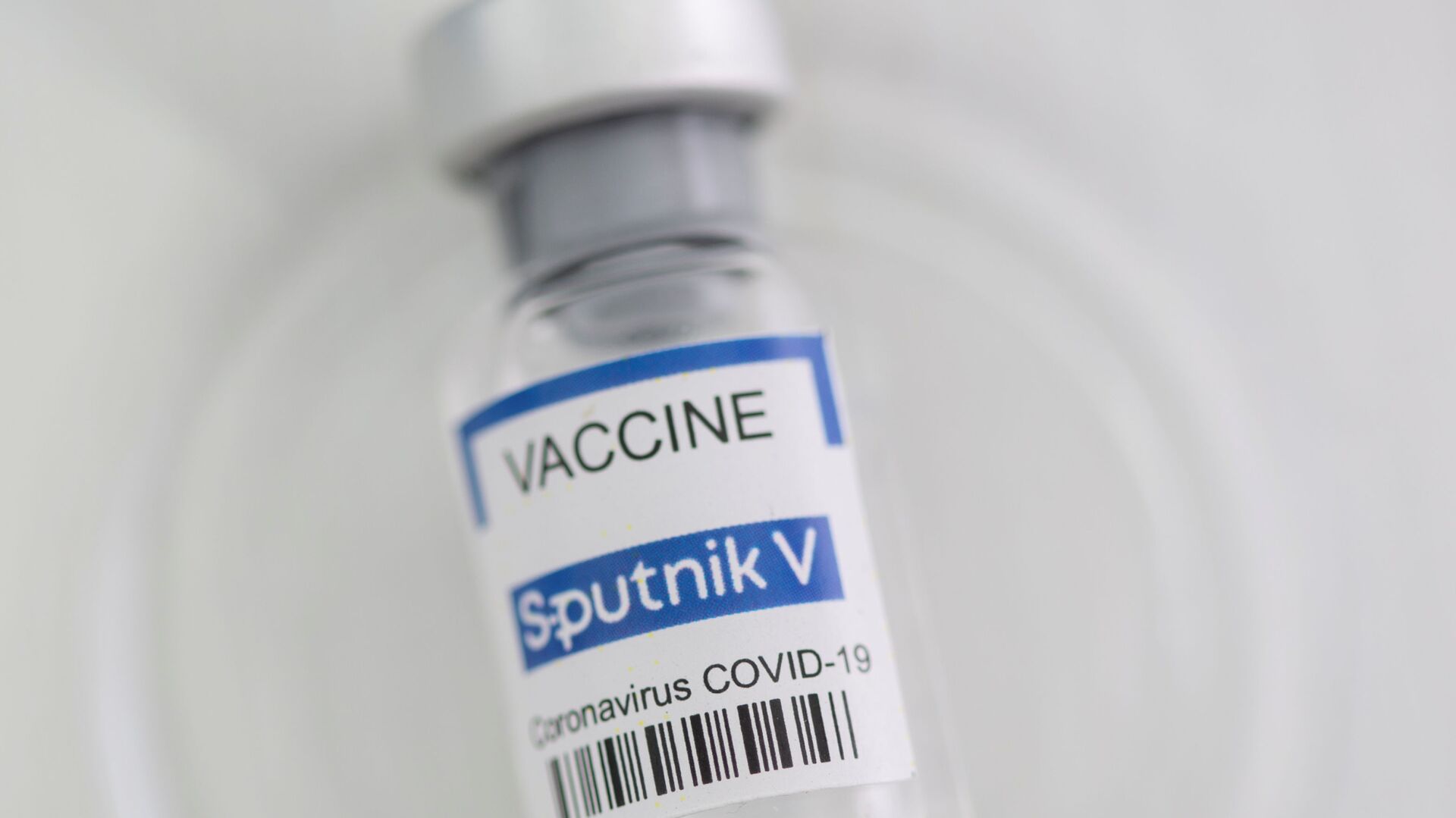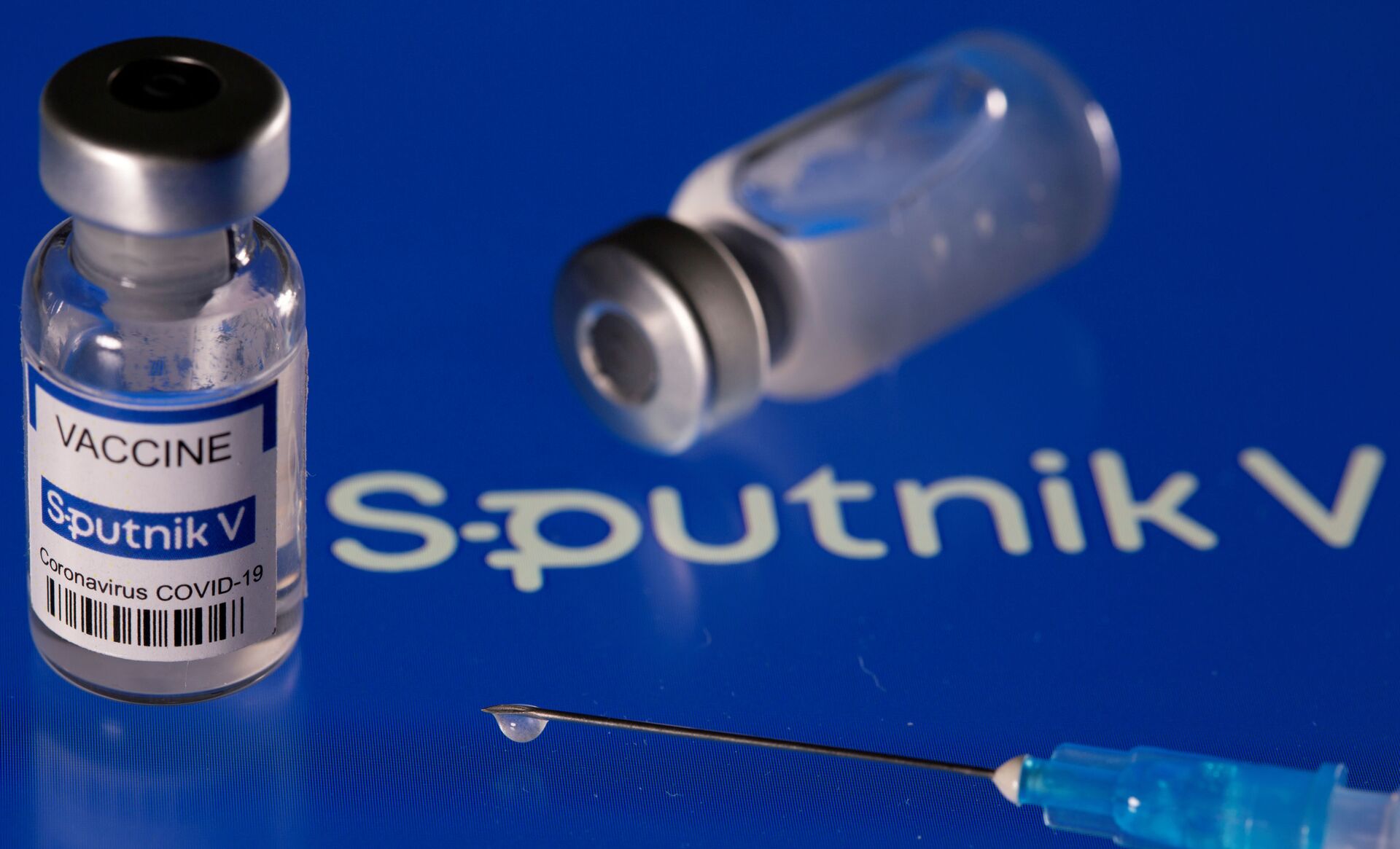https://sputnikglobe.com/20211012/who-can-approve-russias-sputnik-v-covid-19-vaccine-by-end-of-year-chief-scientist-says-1089855190.html
WHO Could Approve Russia's Sputnik V COVID-19 Vaccine by End of Year, Chief Scientist Says
WHO Could Approve Russia's Sputnik V COVID-19 Vaccine by End of Year, Chief Scientist Says
Sputnik International
GENEVA (Sputnik) - The World Health Organisation (WHO) could approve Russia's Sputnik V COVID-19 vaccine by the end of the year if Moscow signs the necessary... 12.10.2021, Sputnik International
2021-10-12T08:19+0000
2021-10-12T08:19+0000
2021-10-12T08:40+0000
world health organization (who)
world
sputnik v vaccine
https://cdn1.img.sputnikglobe.com/img/07e5/05/09/1082841328_0:141:3141:1907_1920x0_80_0_0_5efa5e2271812813545254c55ab15e01.jpg
The WHO hopes to send its experts to Russia as soon as possible to inspect manufacturing sites, the expert added."We hope so [Sputnik V will be approved], and it is a good vaccine from the data we have seen," she said.The vaccine's developers first applied for WHO approval in February, and the organisation conducted inspections of the Russian manufacturing facilities in May and June. In October, Moscow announced that the WHO had lifted all barriers for Sputnik V's approval.Sputnik V is currently authorised for use in 70 countries representing a total population of four billion people, or 50 percent of the world's populace. It is the world's first registered vaccine against coronavirus and shows over 91.6% efficacy.Mixing It All TogetherAt the same time, Swaminathan stressed that the idea of mixing different vaccines against COVID-19 for boosting the immune response is quite interesting but more research data is needed.At present, the WHO has only data from studies of AstraZeneca followed by mRNA vaccines but is aware of similar studies going on for Sinovac and Sinopharm followed by mRNA vaccines, and for the combination of Sputnik V and AstraZeneca, the expert noted.The WHO chief scientist emphasized that more research on mixing and matching vaccines should be carried out across the world.Previously, the Russian Direct Investment Fund (RDIF) announced that a clinical study of the combined use of the AstraZeneca and Sputnik Light coronavirus vaccines, had shown a strong neutralising antibody response in the majority of participants
Sputnik International
feedback@sputniknews.com
+74956456601
MIA „Rosiya Segodnya“
2021
Sputnik International
feedback@sputniknews.com
+74956456601
MIA „Rosiya Segodnya“
News
en_EN
Sputnik International
feedback@sputniknews.com
+74956456601
MIA „Rosiya Segodnya“
Sputnik International
feedback@sputniknews.com
+74956456601
MIA „Rosiya Segodnya“
world health organization (who), sputnik v vaccine
world health organization (who), sputnik v vaccine
WHO Could Approve Russia's Sputnik V COVID-19 Vaccine by End of Year, Chief Scientist Says
08:19 GMT 12.10.2021 (Updated: 08:40 GMT 12.10.2021) GENEVA (Sputnik) - The World Health Organisation (WHO) could approve Russia's Sputnik V COVID-19 vaccine by the end of the year if Moscow signs the necessary legal documents in the coming days, WHO Chief Scientist Soumya Swaminathan said in an interview with Sputnik.
"There are some legal documents that need to be signed by both parties before the process [WHO review of the Russian vaccine] continues, and I think this is where we are now. The Russian authorities have assured us that these documents will be signed very soon, and as soon as this is completed ... the dossier evaluation will restart again, the dialogue will restart, and then inspections will be planned", Swaminathan said.
The
WHO hopes to send its experts to Russia as soon as possible to inspect manufacturing sites, the expert added.
"If all this happens [documents are signed] within the next couple of days, the process will restart, and it is very possible that the inspection will also happen before the end of the year, and the process could be completed", Swaminathan noted.
"We hope so [Sputnik V will be approved], and it is a good vaccine from the data we have seen," she said.
The vaccine's developers first
applied for WHO approval in February, and the organisation conducted inspections of the Russian manufacturing facilities in May and June. In October, Moscow announced that the WHO had lifted all barriers for Sputnik V's approval.
Sputnik V is currently authorised for use in 70 countries representing a total population of four billion people, or 50 percent of the world's populace. It is the world's first registered vaccine against coronavirus and shows over 91.6% efficacy.
At the same time, Swaminathan stressed that the idea of
mixing different vaccines against COVID-19 for boosting the immune response is quite interesting but more research data is needed.
At present, the WHO has only data from studies of AstraZeneca followed by mRNA vaccines but is aware of similar studies going on for Sinovac and Sinopharm followed by mRNA vaccines, and for the combination of Sputnik V and AstraZeneca, the expert noted.
"If there is a shortage of supply and we need to give a second dose to an individual we can use a different vaccine because so far from our experience we have not seen any severe bad effects. So it could be done in certain situations, the government can take such a decision. But we need proper studies to see which are the best combinations, what should be the gap, which one should be first and which one should be second," Swaminathan explained.
The WHO chief scientist emphasized that more research on mixing and matching vaccines should be carried out across the world.
"And I am sure that [taking into consideration] the experience of Russia that administered 90 million doses of the vaccine, it would be great to see also studies coming up in longer-term follow-up, [to assess] efficacy, infection, the safety of the combination", she concluded.
Previously, the Russian Direct Investment Fund (RDIF) announced that a clinical study of the combined use of the AstraZeneca and Sputnik Light coronavirus vaccines, had shown a strong neutralising antibody response in the majority of participants





